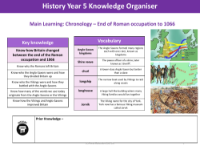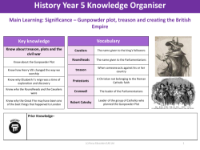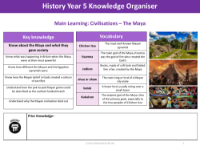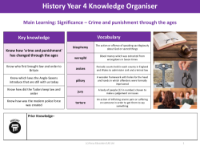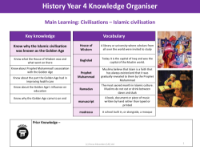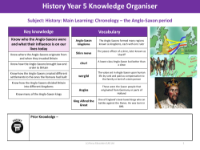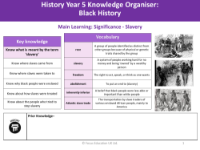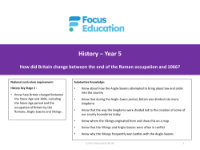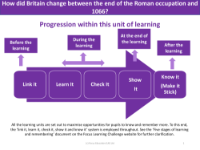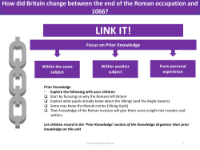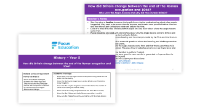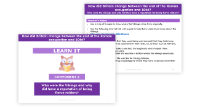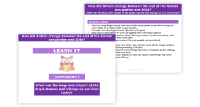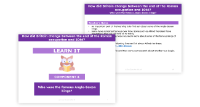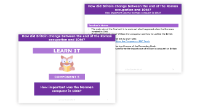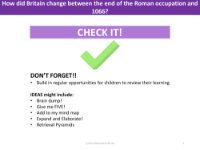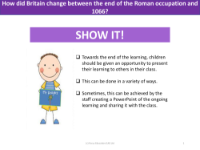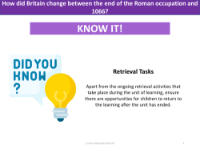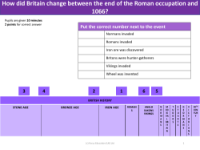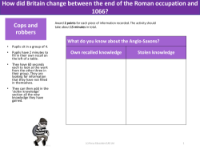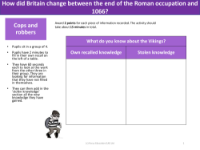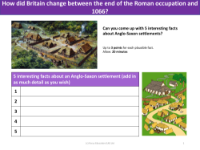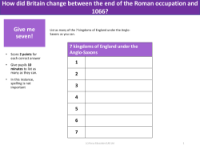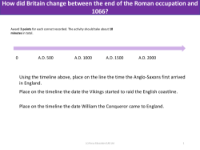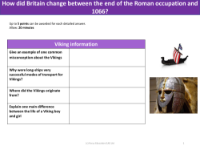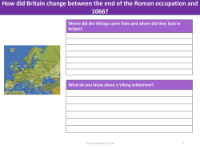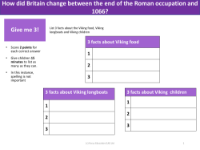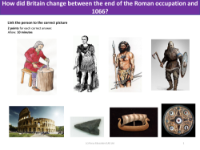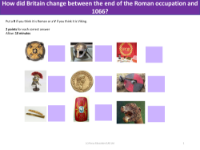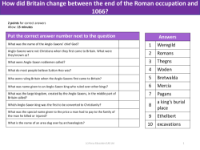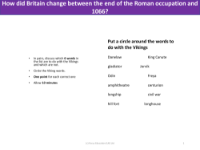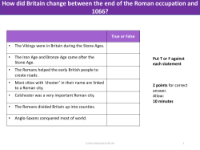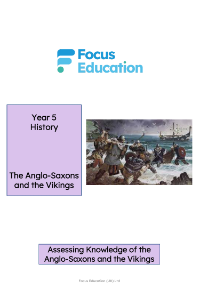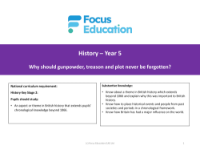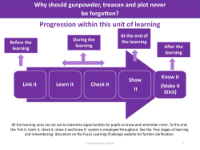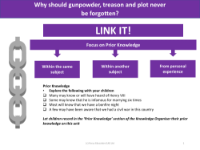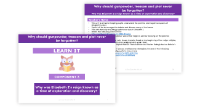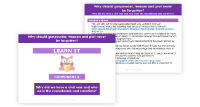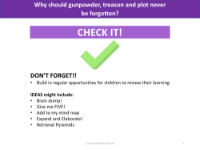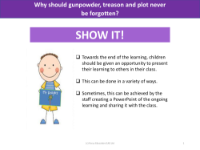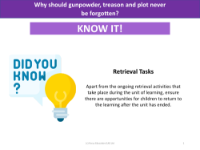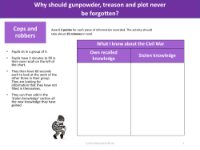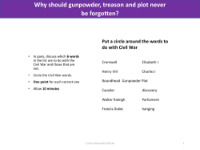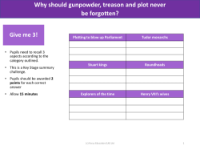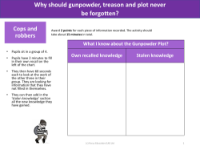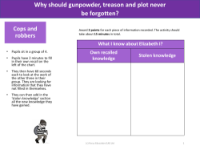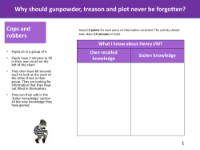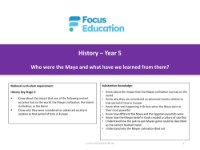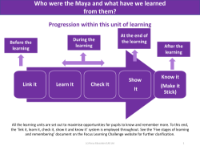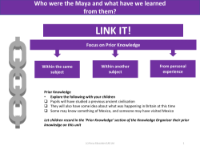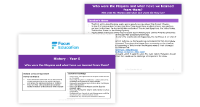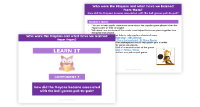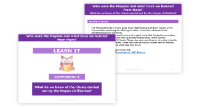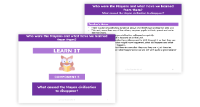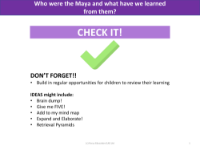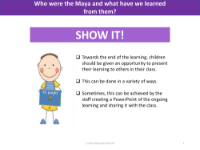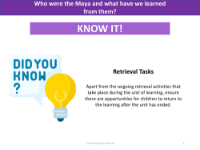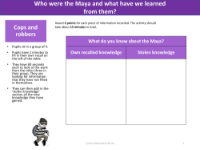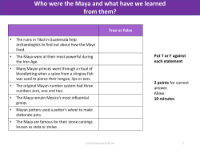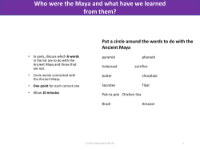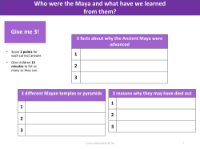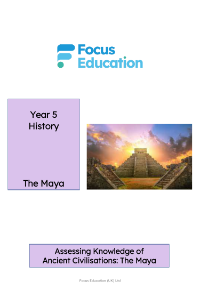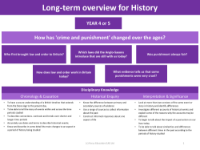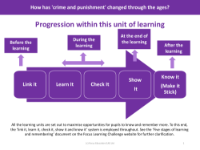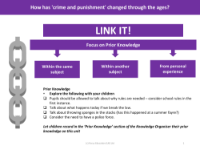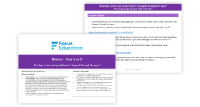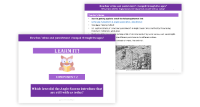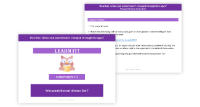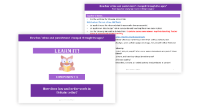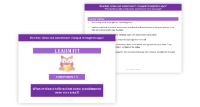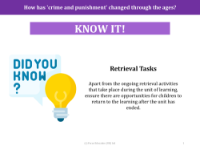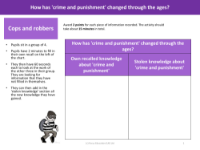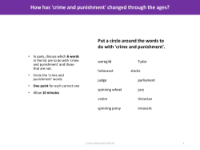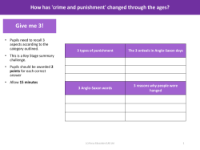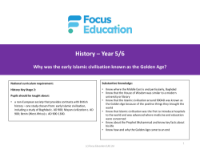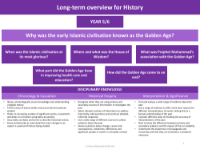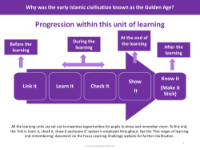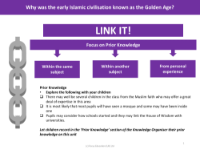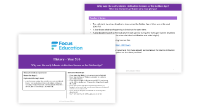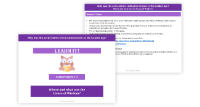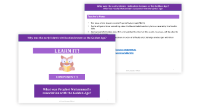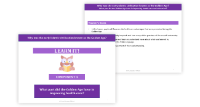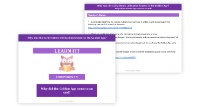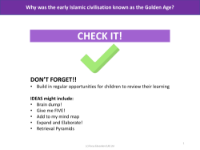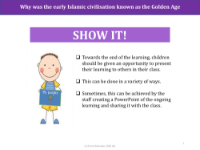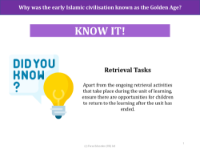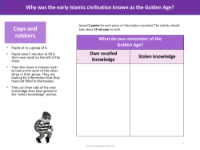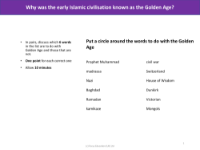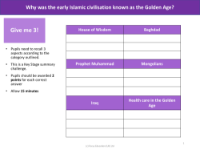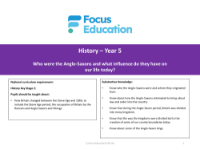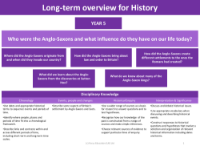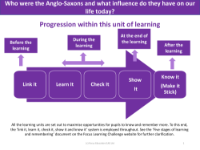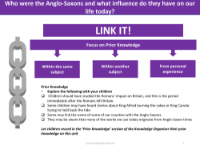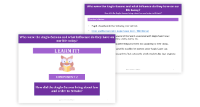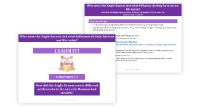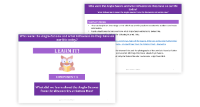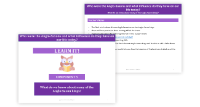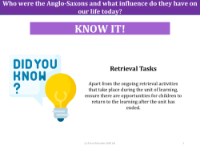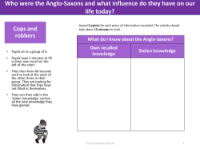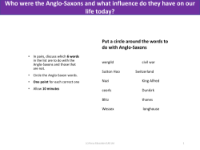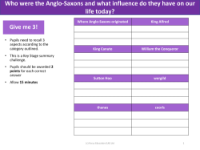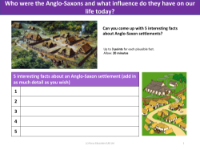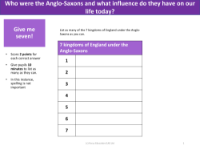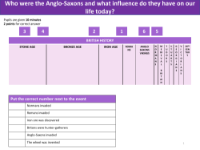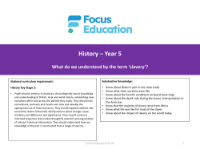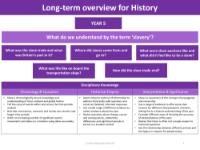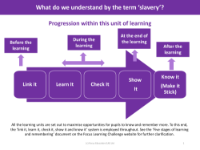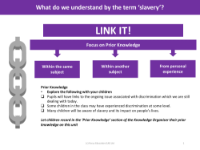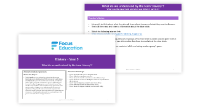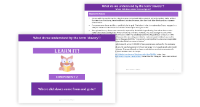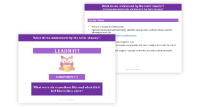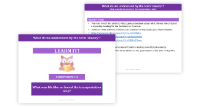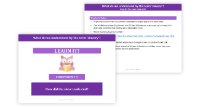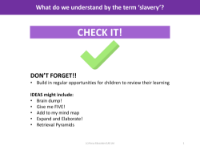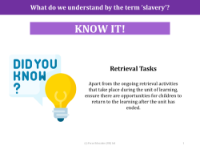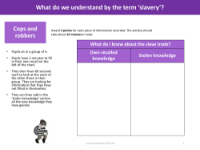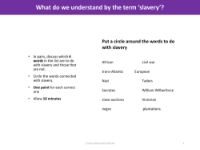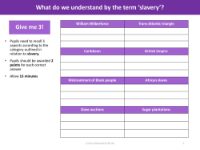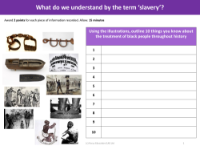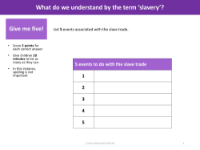History - Year 5 - Focus Education
What does the Year 5 scheme cover?
Focus Education prioritises equipping Year 5 teachers with the essential tools to deliver exceptional History lessons, ensuring remarkable outcomes for pupils. With each lesson focussing around an enquiry-based question, substantive and disciplinary knowledge builds over time to become firmly embedded. This approach not only cultivates a chronological understanding of local, British and world history, but also fosters a lasting appreciation of how our present actions can shape the future.
Anglo-Saxons and Vikings
In this unit, explore the multifaceted nature of the Vikings, recognising them as both fierce warriors and skilled sailors. Investigate the strategic advantages provided by their longboats, which allowed them to navigate coastlines effectively during raids and examine life in the Danelaw and the gradual Anglo-Saxon efforts to reclaim lost territories. Look into the era of Anglo-Saxon monarchs, with a particular focus on Alfred the Great and his leadership in ruling and defending the kingdom, and gain insights into the challenges faced and strategies employed by Alfred during his reign. Conclude the unit by learning about William the Conqueror and his role in unifying the British people. Explore the historical context surrounding his conquest and the lasting impact of his reign on the course of British history.
Key questions answered:
- Who were the Anglo-Saxons and why did they invade Britain?
- Who were the Vikings and why did they have a reputation of being fierce raiders?
- What was the long-term impact of the Anglo-Saxons and Vikings on our lives today?
- Who were the famous Anglo-Saxon kings?
- How important was the Norman Conquest in 1066?
Gunpowder, Treason and Plot
Discover the notorious Gunpowder Plot, with a focus on Guy Fawkes as its best-known member, during this unit. Explore the aftermath of the plot's discovery, which led to the majority of conspirators fleeing from London. Investigate the historical context behind Henry VIII's decision to transition England from a Catholic country to the formation of the Church of England and examine the reign of Queen Elizabeth I, considering both the positive and negative aspects of her rule. Understand the significance of this era as a time of discovery and exploration, and show an awareness of the concept of propaganda and censorship.
Key questions answered:
- What do we know about the Gunpowder Plot?
- How did Henry VIII change the way we worship?
- Why was Elizabeth I’s reign known as a time of exploration and discovery?
- Why did we have a civil war and who were the Roundheads and Cavaliers?
- Could the Great Fire have been one of the best things that happened to London?
Mayans
During this unit, understand that the Ancient Maya were an advanced civilisation and that there are aspects of what they did that we cannot understand, even today. As well as the pyramids, you’ll learn about how the Ancient Maya were highly involved in chocolate making and that they created the concept of ‘zero’. Think, speak and write like historians while exploring evidence about why the Mayan civilisation died out, looking for conclusive evidence.
Key questions answered:
- Who were the Maya and when and where did they live?
- What evidence do we have that the Maya were an advanced civilisation?
- How did the Maya become associated with the ball games pok-ta-pok?
- What do we know of the rituals carried out by the Mayan civilisation?
- What caused the Mayan civilisation to disappear?
Crime and Punishment
Explore the intriguing aspects of "crime and punishment" during Anglo-Saxon times in this unit, looking into the significance of social status and importance in this context. Investigate the laws, punishments and ordeals introduced by the Anglo-Saxons, shedding light on the intricacies of justice during that period.
Find out about the severe treatment of vagrants and beggars during Tudor times and examine the social attitudes and legal measures that shaped the treatment of individuals during this era. Explore the evolution of the legal system, noting when women were introduced to juries, and discover the origins of MI5 and MI6 in our country, understanding their historical significance.
Key questions answered:
- Who first brought law and order to Britain?
- Which laws did the Anglo-Saxons introduce that are still with us today?
- Was punishment always fair?
- How does law and order work in Britain today?
- What evidence tells us that some punishments were very cruel?
Islamic Civilisation
Research to find out what was happening in Britain during the time the early Islamic civilisation was at its strongest during this unit. Explore the intellectual achievements of this period, particularly the House of Wisdom, where highly intelligent people gathered to share knowledge. Investigate the significant contributions made to medicine and dentistry during this time and how it laid the foundation for advancements in healthcare. Get to know about Prophet Muhammad’s life and beliefs, understanding why he is revered by the Muslim faith and considered the last 'Messenger of God' in Islam. Focus on the healthcare advantages promoted during the Islamic Golden Age and how Muslim doctors built on previous discoveries to accelerate the growth of medical science. Examine the role of Islamic scholars in preserving and advancing knowledge in various fields, contributing to the overall progress of civilisation during this era.
Key questions answered:
- When was the Islamic civilisation at its most glorious?
- Where and what was the House of Wisdom?
- What was Prophet Muhammad’s association with the Golden Age?
- What part did the Golden Age have in improving health care and education?
- How did the Golden Age come to an end?
Anglo-Saxons
In this unit, delve into several key terms associated with Anglo-Saxon laws, such as wergild, blood feuds, thanes, ceorls and slaves. Explore how punishment varied according to the status of individuals within the social hierarchy and investigate the roles and rights of women under Anglo-Saxon law, gaining insights into the nuances of their legal standing. Discuss the differences between Anglo-Saxon and Roman settlements and examine photographs of artefacts from Sutton Hoo, reflecting on how these findings contribute to our understanding of Anglo-Saxon life and organisation of their communities. Learn about Anglo-Saxon kings and the division of the kingdom of England during this time, while understanding the political and social structures that characterised Anglo-Saxon England, contributing to a comprehensive view of this historical period.
Key questions answered:
- Where did the Anglo-Saxons originate from and when did they invade our country?
- How did the Anglo-Saxons bring about law and order to Britain?
- How did the Anglo-Saxons create different settlements to the ones the Romans had created?
- What did we learn about the Anglo-Saxons from the discoveries at Sutton Hoo?
- What do we know about many of the Anglo-Saxon kings?
Slavery
In this unit explore how the initial European contact with African people primarily involved trade, without the intention of enslaving them in different colonies. Explore how the transatlantic slave trade began, discover what slave auctions were like, and what it felt like to be a slave. Research the life of William Wilberforce and his involvement in the end of slave trade.
Key questions answered:
- What was the slave trade and what was Britain’s part in it?
- Where did slaves come from and go to?
- What were slave auctions like and what did it feel like to be a slave?
- What was life like on board the transportation ships?
- How did the slave trade end?
What’s included for Year 5 teachers?
- Full Year 5 National Curriculum coverage
- Detailed lesson plans and presentations
- Visual knowledge organisers for each lesson
- Comprehensive assessment materials
- Links to prior and future learning, progression maps & more!
